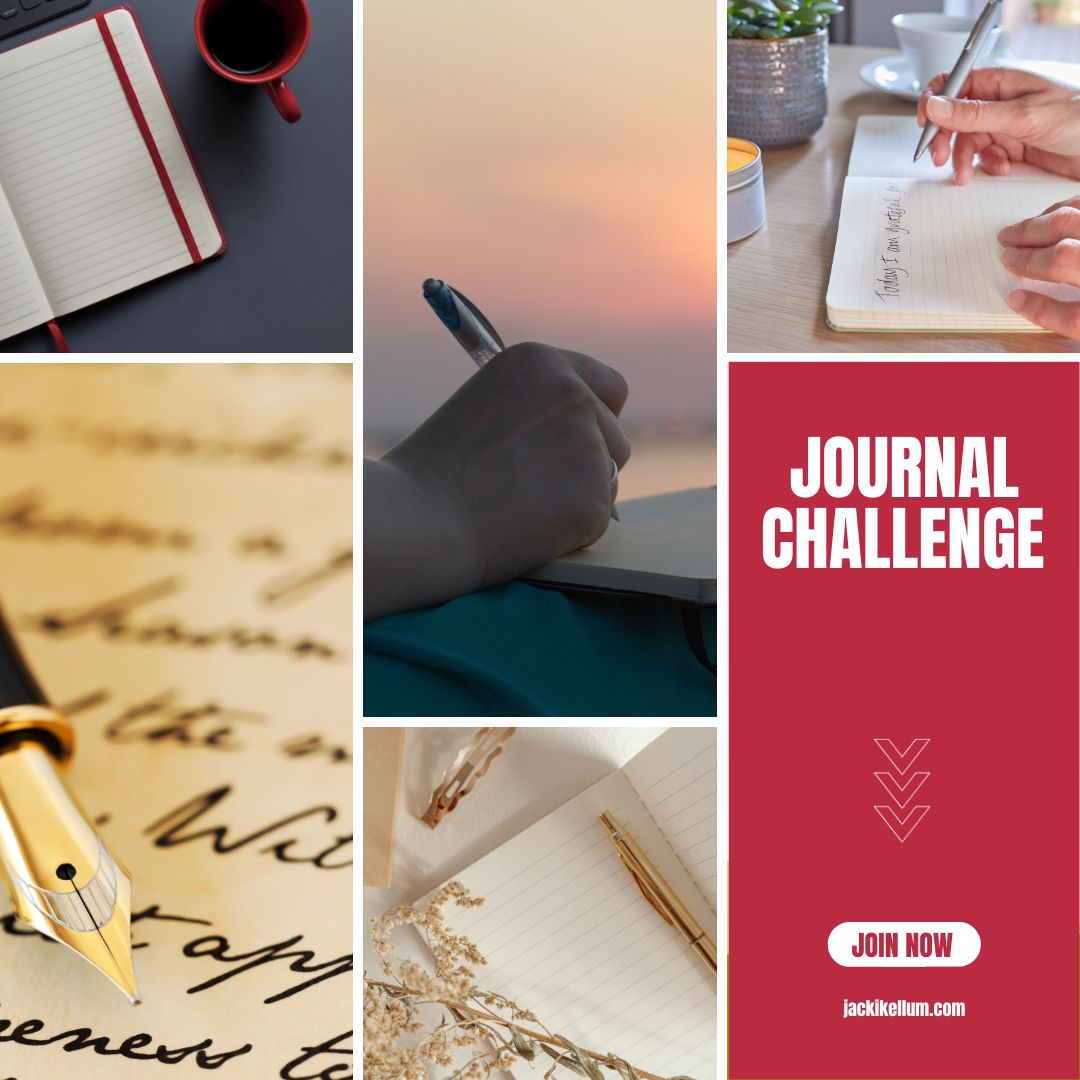
Take the Journal Challenge – Join Today – Free!
For many years, I have said that everyone should write something every day. I’m not talking about being an official writer. Certainly. writers should write every day, but the rest of the world’s folks need to do the same.
Write for Your Life
More than once, I have written myself out of a bout of depression–one word at a time.
Writing Can Heal
Writing is like having a full-time psychiatrist in your life. And it’s free!
The good news is that you don’t have to write long, slobbering mounds of words to heal yourself. It only takes a few designated minutes, some looking around yourself, and writing a few chosen words about what you see, hear, and sense
Take a Few Seconds. Start with a Few Words:
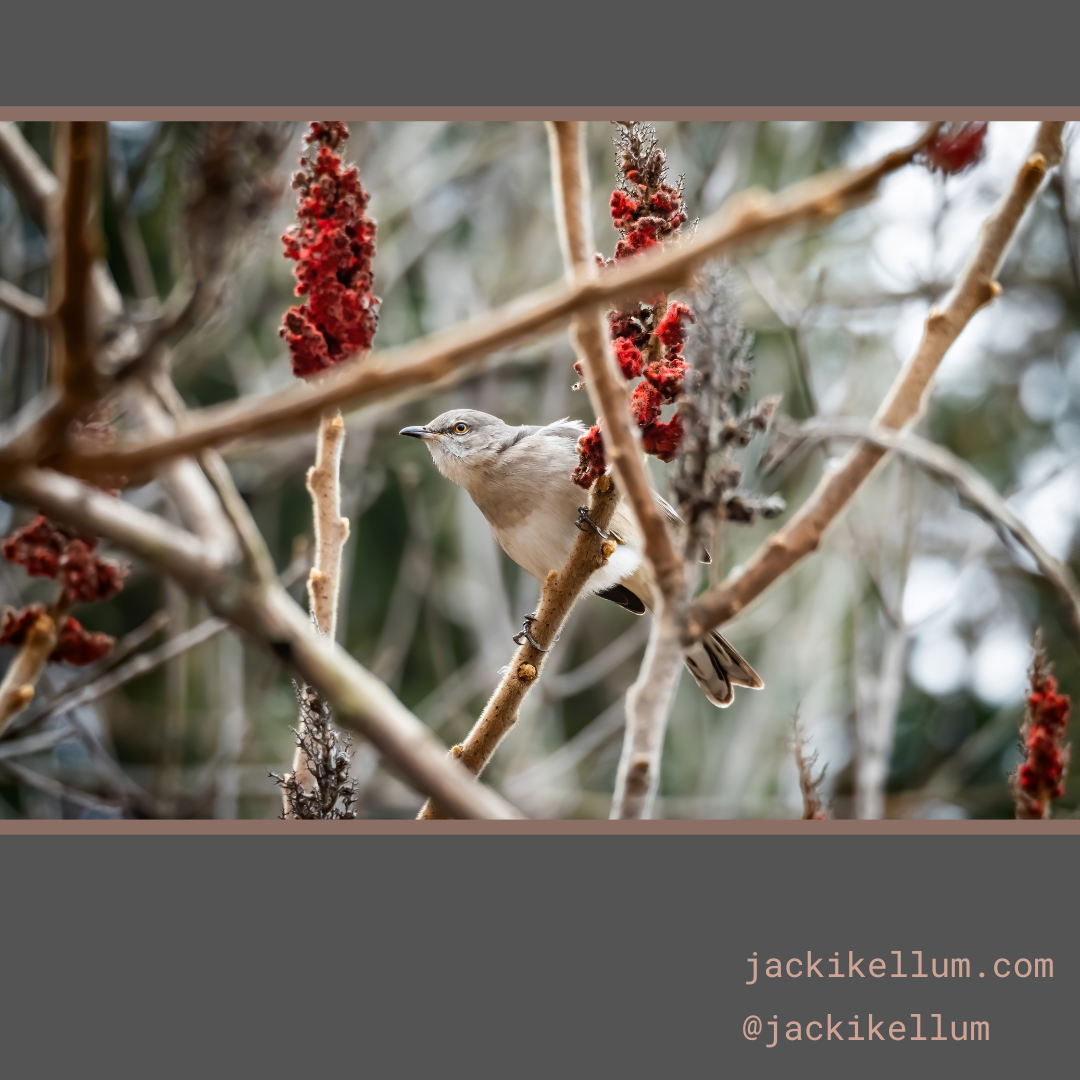
Little shards of sleet fell upon the frozen ground. A mockingbird greeted me at my back door. Chittering chinks of ice filled the sky. – Jacki Kellum Journal Entry January 15, 2024
Journal as a Type of Meditation
You are probably thinking: “How could writing a few words heal me?” What I have written above is part of a meditative moment. For just a few seconds, I turned off the noise and focused intently on something outside of myself. To achieve the same effect, the traditional meditators often use a sound like “Ohmmmmmm.” That sound never worked for me, but when I am focusing on what is happening in nature, I become meditative.
Nature is Great for Meditation. Specifically, my garden is where I meditate.
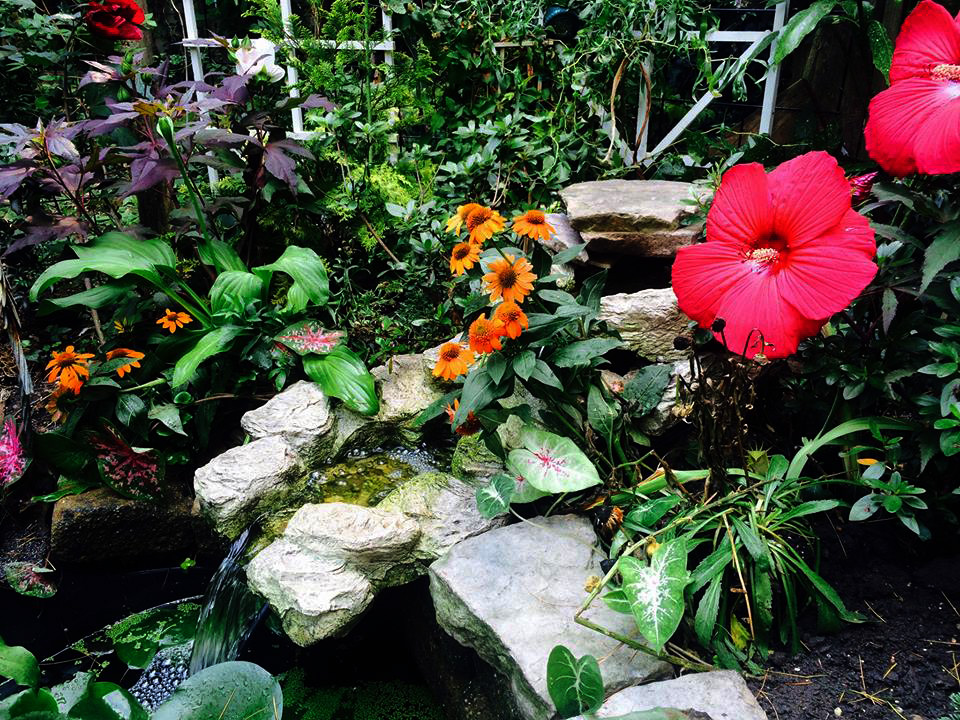
Jacki Kellum Garden in New Jersey
When I noticed the above scene and photographed it, I meditated a tiny bit. To snap a photo requires a few seconds of mindfulness, but writing a description requires that I stop the world around me for several minutes and step into the world about which I am writing. That stepping into another realm is the point of meditation. In totally stepping into a space in my garden long enough to write about it, I stop the chatter within myself, and that is how the healing begins.
How to Journal Step 1: Look Closely at the World Around Yourself and Enter the Moment
A great deal is written about the importance of mindfulness. Making honest notes about what we see around us is a way to force ourselves to be more in the moment.
Notice in my entry for January 15 that I didn’t look back at the rains that flooded my garden yesterday, and I didn’t look ahead at the cold weather that is coming in 2 days. My first impulse was to do that, but that is not a mindful note about what is happening at the moment. I keep a blog and I eulogize in those posts. This is different. This is simply focused mindfulness about exactly what is. Check out my Journal Entry for January 14:
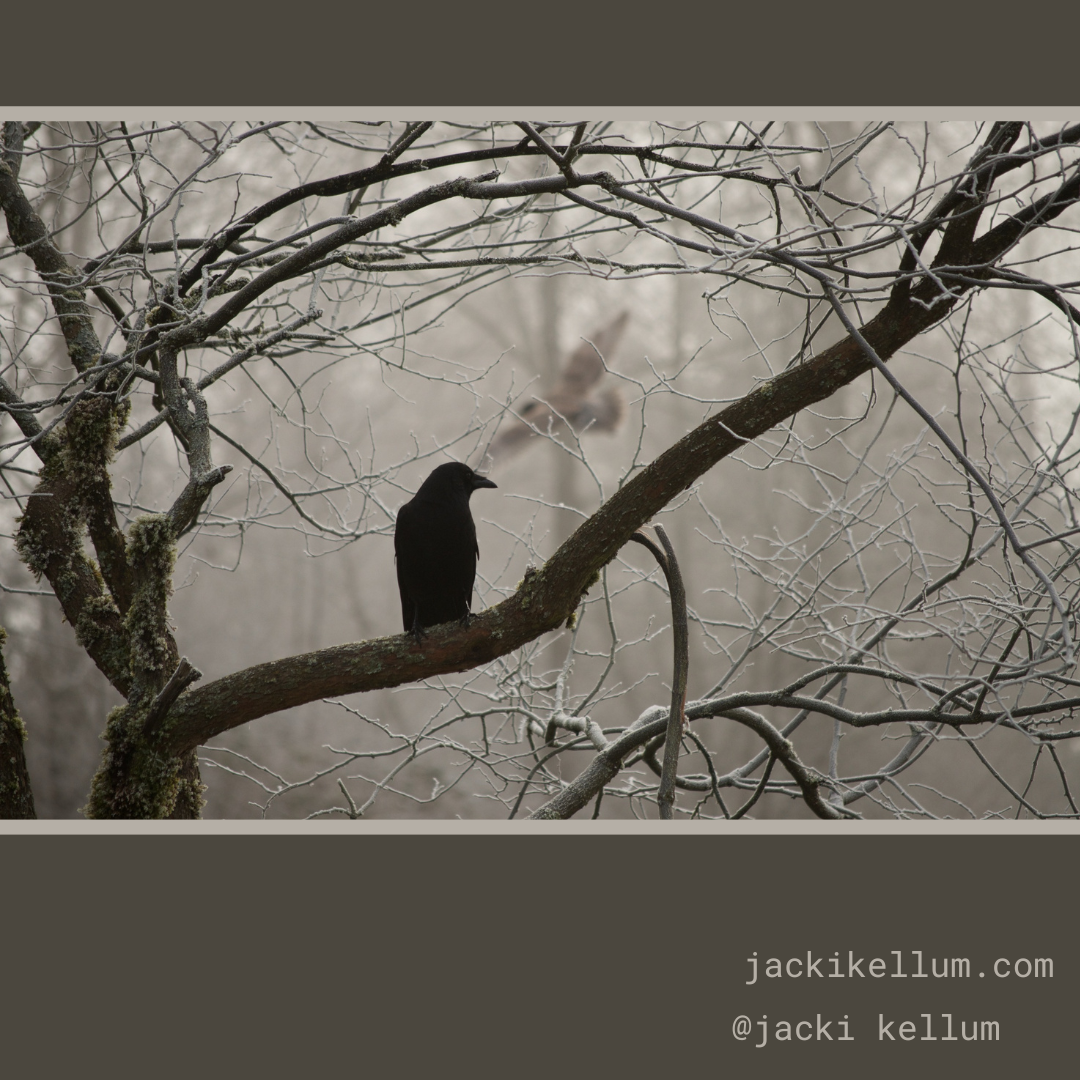
It was quiet outside, and I could hear a crow cawing from somewhere in the distance. Like the cry of a wounded soldier, his voice pealed across the winter sky. Jacki Kellum Journal Entry January 14, 2024
How to Journal Step 2: Write Concise, Honest Evaluations that Capture Exactly What You Are Sensing Around Yourself.
Initially, don’t turn this exercise into a eulogy. Don’t write a tome–At least not yet. Simply look, “SEE,” and record.
Later, you can go back and expound upon your observations from each day, but first and foremost–simply capture your observations in a few, simple words. You don’t need to be an aspiring writer to do that. Again, everyone can benefit from this type of journaling.
How to Journal Step 3: Don’t Preach. There Doesn’t Need to Be A Moral of the Story
This morning, as soon as I opened the door, I heard the sleet plinking on the ground.
I could have launched into an epistle about the dangers of ice–especially for older people–and especially for drivers. That is not what you should do for this challenge.
I could have brushed the entire thing away with a cute, quick quip–such as
“Snow that you hear – Always fear.”
That’s original writing, and anyone who has survived an ice storm or two will understand those words. A soft, silent snow is not icy as it falls, but when I hear a wintry mix, my first thought is: “Beware. Don’t Fall!
But preaching about the dangers of icy weather and/or dismissing your feelings with a cute saying is not writing in the moment. Those approaches say something about your subject, but they do not capture the sensation of what it is–without my moralizing about it.
Again, my journal entry about the wintry mix is as follows:
“Little shards of sleet fell upon the frozen ground. A mockingbird greeted me at my back door. Chittering chinks of ice filled the sky.” Jacki Kellum Journal Entry January 15, 2024
Bonuses of Journaling for Aspiring Writers
Writing Concise, Honest Evaluations in the Moment Will Improve Your Writing Ability.
Show Don’t Tell
Have you heard this bit of writing advice: “Show Don’t Tell.” Daily honest observations of our worlds can help us grasp the difference between showing and telling
Don’t Be Suprised if Your Daily Notes Allude to More Than What They Suggest
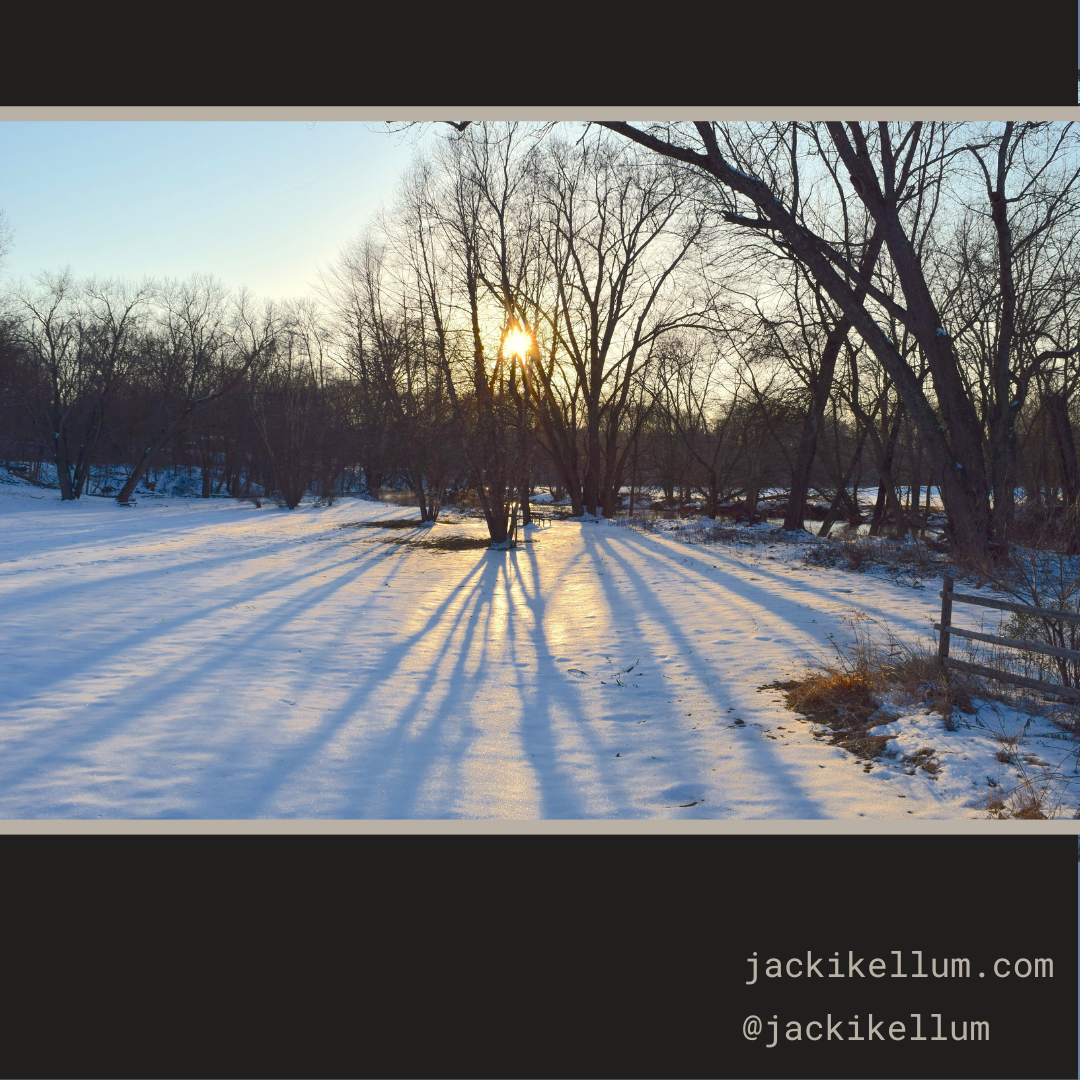
Journal Entry for January 16, 2024
The sun is peeking from behind the clouds, casting shadows across the icy snow. The light behind–shadows ahead. My world has been paralyzed by ice and cold.
As I wrote the previous words, I was dealing with the pain of having recently lost my mother and of having been forced to postpone her funeral service. Certainly, an open wound will be left gaping for more days or weeks, but today, I was hurt by the fact that someone in my hometown attacked me because of my having postponed the service. I often write about how the themes of darkness versus light are played in literature. Today, as I looked out across the snow, I saw both happening at once. Nature was echoing how I felt inside. It often does.
Create a Bank of Honest Observations to Serve as Settings in Future Pieces
When you are writing something else and need some good descriptions, go to your bank and withdraw something that you wrote from actual observation. This is a better approach than simply piling on a bit of mushy word salad that sort of describes what you are trying to say.
Yesterday, after I wrote the words about the crow’s calling, I thought to myself: “Wow! Add about 500 more words, and you’ll have a murder mystery.”
“It was quiet outside, and I could hear a crow cawing from somewhere in the distance. Like the cry of a wounded soldier, his voice pealed across the winter sky.” Jacki Kellum Journal Entry January 14, 2024
To work, settings need to be accurate. They don’t need a bunch of useless fluff. They do need to create a mood, and the words about the crow’s call create a mood.
My journal entry for January 15 sets a different mood, but again, it creates a setting for an entirely different piece:
Little shards of sleet fell upon the frozen ground. A mockingbird greeted me at my back door. Chittering chinks of ice filled the sky. – Jacki Kellum Journal Entry January 15, 2024
“Chittering chinks of ice” — I can taste, hear, and feel that description.
Keeping a garden and/or a nature journal is important for everyone, but for those of us who do other, more serious writing, it is a way to sharpen our writing skills.
Too much eulogizing, and we quickly get mired in a snare of our own words. For this project, Go outside each day, Look carefully until you See. Listen. Smell. And write a few words. That’s all. But the exercise depends on truly “seeing” what is around.
Discover more from Jacki Kellum
Subscribe to get the latest posts sent to your email.